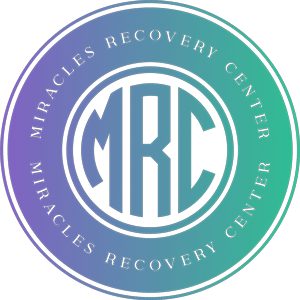Navigating the world of drug abuse treatment can be confusing, especially with so many myths floating around. It’s important to separate fact from fiction to ensure that individuals and their loved ones make informed decisions. Let’s debunk some of the most common myths surrounding drug abuse treatment.
1. Treatment Is Only For Severe Cases
Contrary to popular belief, treatment is not just for those in the direst of situations. Early intervention can be incredibly beneficial and can prevent the escalation of addiction. There’s a misconception that you must wait for a crisis point before seeking help, but this couldn’t be further from the truth. Seeking help early can set the foundation for long-term recovery, much like how nipping minor health issues in the bud can prevent more severe illnesses. In fact, many successful treatment stories begin with early detection and intervention. To explore more about how early intervention plays a key role, consider reading insights on supporting a loved one undergoing addiction therapy.
Acknowledging the courage it takes to seek help at any stage is crucial. The stigma often associated with reaching out for treatment can be a barrier itself. Communities that are actively working to eliminate this stigma prove that treatment is a vital resource at any stage of substance use disorder. Understanding that seeking treatment early can empower individuals to lead healthier lives, underlines the importance of looking for treatment options the moment the need arises.
2. Rehabilitation Centers Are All The Same
Many people assume that all treatment centers offer the same services, but this is far from the truth. Each center may have different specialties, approaches, and support systems. For instance, some facilities might focus on holistic approaches, incorporating mindfulness and physical activity, while others may offer more traditional therapy sessions. Exploring and understanding the array of options available can lead to more effective outcomes tailored to individual needs. Miracles Recovery Center, for instance, offers diverse paths such as PHP, IOP, and OP programs to support varying needs and lifestyles in the journey towards recovery.
Customization of care is what sets treatment centers apart. It’s important to find a facility that matches one’s personal recovery goals and values. From the length of the program to the philosophies they adhere to, the differences are substantial. When searching for a treatment facility, it is beneficial to ask detailed questions about the types of therapies offered, get details about their success rates, and assess their level of accreditation to ensure the quality and sincerity of their services. This individual approach can significantly influence recovery outcomes.
3. You Have To Hit Rock Bottom
The notion that treatment only works after hitting rock bottom is not only outdated but also dangerous. Early treatment can lead to a quicker and more sustainable recovery. This myth likely originates from dramatic portrayals in media where individuals only realize the need for change after extreme consequences. However, many professionals argue that waiting for dire situations can complicate and prolong recovery efforts. The reality is that individuals on various stages of addiction can benefit immensely from rehabilitation, whether they are beginning to lose control or simply want to maintain a healthier lifestyle.
Effective drug abuse treatment emphasizes harm reduction, aiming to minimize the negative health, social, and legal impacts associated with drug use. This approach supports users at any stage of substance use and promotes healthier choices. Initiating treatment before reaching such extremes can spare individuals and their loved ones a significant amount of emotional and physical distress, while setting the stage for a more promising and less turbulent recovery journey.
4. Detox Is The Only Necessary Step
Detoxification is just the beginning of the treatment journey. Comprehensive programs that include therapy, counseling, and aftercare are essential for long-term success. Detox helps to clear substances from the body, but the underlying issues that contribute to addiction must be addressed to prevent relapse. Just like any medical condition, treating addiction effectively requires understanding the root cause, be it psychological or social. Alongside detox, engaging with behavioral therapies can foster skills to cope with life’s challenges without resorting to substance use. Various approaches such as cognitive-behavioral therapy (CBT) and group therapy offer new perspectives and strategies that can lead to sustained sobriety.
Long-term recovery involves a comprehensive view of a person’s life, examining and mending the areas impacted by addiction. Medication-Assisted Treatment (MAT), for example, combines these elements by using medication, counseling, and behavioral therapies to tailor a plan that meets the specific needs of the individual. This approach has been shown to be successful in reducing the risk of relapse by addressing the biological, psychological, and social aspects of addiction. Remember, finishing detox is an achievement but continuing the journey with holistic treatment paves the way for a new path forward.
5. Once Is Enough
Many think that treatment is a one-time event. In reality, recovery is a lifelong process and may require multiple interventions. This misbelief underestimates the chronic nature of addiction which can often entail cycles of relapse and remission. Each phase of a person’s recovery may bring about different challenges, requiring refreshed strategies and perspectives. While initial treatment can jumpstart the recovery journey, ongoing maintenance is crucial to sustain long-term sobriety over time.
The truth is, addiction changes the brain, making it necessary to adapt one’s lifestyle and coping mechanisms accordingly. Being open to continuing care, such as attending support groups or engaging in regular therapy, is vital to integrate these changes into daily life. This proactive approach helps individuals to remain vigilant, manage cravings, and handle triggers effectively. Also, keeping connected with the recovery community provides ongoing encouragement and a reminder that although life may present challenges, help and hope are always available.
6. Treatment Is Too Expensive
While cost can be a concern, there are various options, including insurance coverage, sliding scales, and state-funded programs that make treatment accessible. The perception of cost being a barrier often deters people from seeking help, yet understanding the available financial aid is crucial. The Affordable Care Act (ACA) mandates that insurance plans cover substance use disorder treatments, significantly alleviating financial burdens for those in need.
Many treatment centers also offer assistance in navigating insurance benefits or provide payment plans tailored to an individual’s financial situation. Some, like Miracles Recovery Center, work with insurance providers to ensure that treatment costs don’t become an impediment. Options are out there, and spending time understanding them can open doors to necessary care without unnecessary financial strain.
7. It’s A Personal Weakness
Addiction is a complex disease, not a sign of personal failure. Understanding this is vital for seeking appropriate and compassionate treatment. The stigma attached to addiction often oversimplifies it as a mere lack of willpower. In truth, it is a multifaceted condition involving genetic, environmental, and psychological factors. This can include underlying mental health disorders, family history of addiction, or traumatic experiences, which require nuanced, tailored approaches for treatment.
Awareness and education play crucial roles in dismantling this misconception. Encouragingly, society is becoming more informed about addiction’s complexities, as evidenced by increasing depression awareness efforts indicating progress against mental health stigma. Treatment centers strive to provide judgment-free environments where individuals can focus on healing and rebuilding their lives, uninhibited by outdated views on addiction.
8. Treatment Is Unsuccessful
Success rates vary, but with personalized treatment plans and support, many individuals achieve and maintain sobriety. It’s easy to find exaggerated stories of failure due to biased anecdotes or media portrayals. However, numerous success stories highlight the power of comprehensive and integrated treatment approaches in reshaping lives. Many individuals emerge from treatment with renewed hope and determination, a testament to the transformative potential of effective and personalized care.
Viewing addiction recovery as a singular event diminishes the ongoing triumphs and challenges faced by many. While the road to recovery can be arduous, accounting for individual progress rather than comparing to others can cultivate a healthier outlook on success. Letting go of perceived failures and celebrating each step of progress turns the idea of treatment from a singular success-or-failure outcome into an ongoing journey of learning and growth.
9. Support Groups Are Ineffective
Support groups are an integral part of recovery for many, providing community, accountability, and encouragement. It’s easy to undervalue their impact, but these groups create spaces where individuals can share experiences and challenges, providing emotional and practical benefits of immense value. Whether through Alcoholics Anonymous (AA), Narcotics Anonymous (NA), or specialized local support networks, these gatherings tailor the experience, catering to diverse backgrounds and needs.
Moreover, support groups emphasize the power of community, showcasing that recovery isn’t meant to be faced alone. The mutual understanding within these groups fosters empathy and compassion, offering a safe harbor from judgment and isolation. Support groups instill a sense of belonging and hope, where members can continuously draw strength from one another’s journeys and share strategies for overcoming hurdles.
10. Medication In Treatment Is Dangerous
Medications can play a crucial role in recovery when used responsibly and under medical supervision. They are often a part of comprehensive treatment plans, especially within Medication-Assisted Treatment (MAT) protocols, which balance pharmacotherapy with counseling and behavioral therapies. While concerns about dependency and side effects exist, these medications are carefully administered with the goal of managing withdrawal symptoms and reducing the risk of relapse.
Debunking the myth around medication involves understanding their essential role in managing not just physical, but also psychological aspects of addiction. For example, using methadone or buprenorphine in controlled settings can stabilize patients, allowing them to engage more effectively in counseling and life skills training. Ensuring safe administration through reputable treatment centers alleviates potential risks, facilitating a safer and more structured environment for recovery.
11. Only One Kind Of Treatment Works
There is no one-size-fits-all approach to treatment. A combination of therapies may be effective for different individuals, catering to their unique needs. Success in rehab often stems from an integrative approach that includes individual therapy, group sessions, educational workshops, and ongoing support to ensure the best results for each participant. This variety allows individuals to explore what resonates best with them, thereby actively participating in crafting their recovery journey.
The diversity in available treatments is beneficial because it acknowledges the complexity and individuality of those battling addiction. Viewing recovery holistically ensures that medical, psychological, and social factors are addressed, establishing a strong foundation for lifelong sobriety. Discovering and combining therapeutic elements that engage the body, mind, and spirit fosters a comprehensive healing process that traditional singular approaches often overlook.
12. It’s Too Late
It’s never too late to seek help and begin recovery. Every step towards treatment is a positive move towards a healthier future. While some may feel that they’ve waited too long, acknowledging the need for change is already a significant leap forward. Rehabilitation offers the chance to rebuild lives at any point, where age or duration of addiction doesn’t stand as barriers to starting.
Reassessing priorities and ambitions in recovery, even if initiated later in life, can evoke new inspiring goals. The willingness to embark on this path reflects profound bravery—a testament to human resilience. For those contemplating reaching out, know that each day brings a fresh opportunity to instigate meaningful and transformative change that can lead to rejuvenated life experience, irrespective of past setbacks.
Take the first step towards a renewed and empowered self with professional guidance. At Miracles Recovery Center, customized treatment plans are available to foster and encourage healing, ensuring that help is just within reach whenever you’re ready to embrace it.





